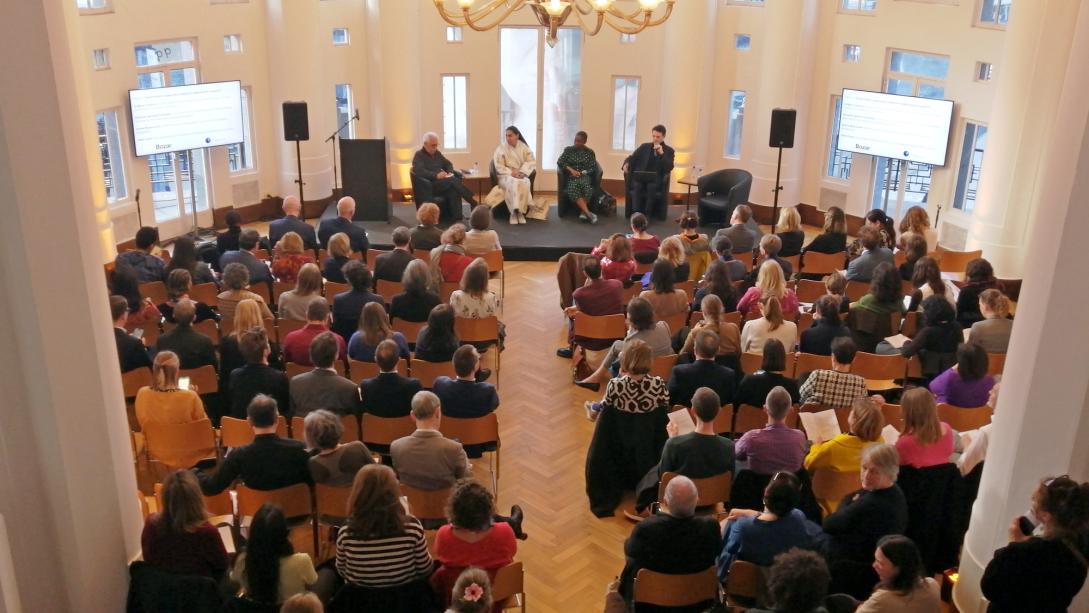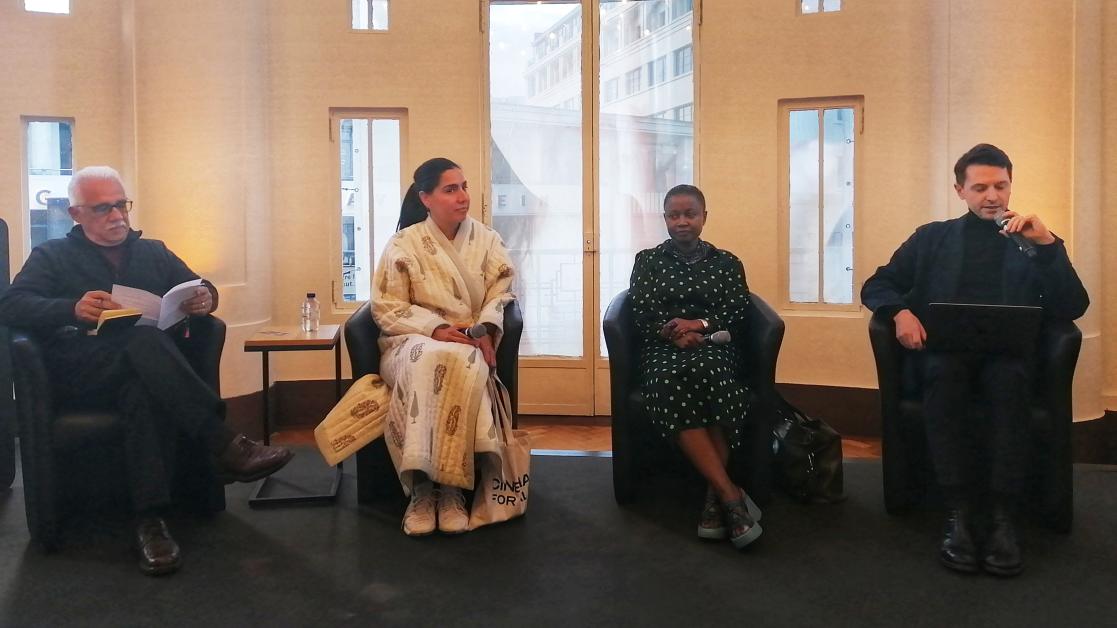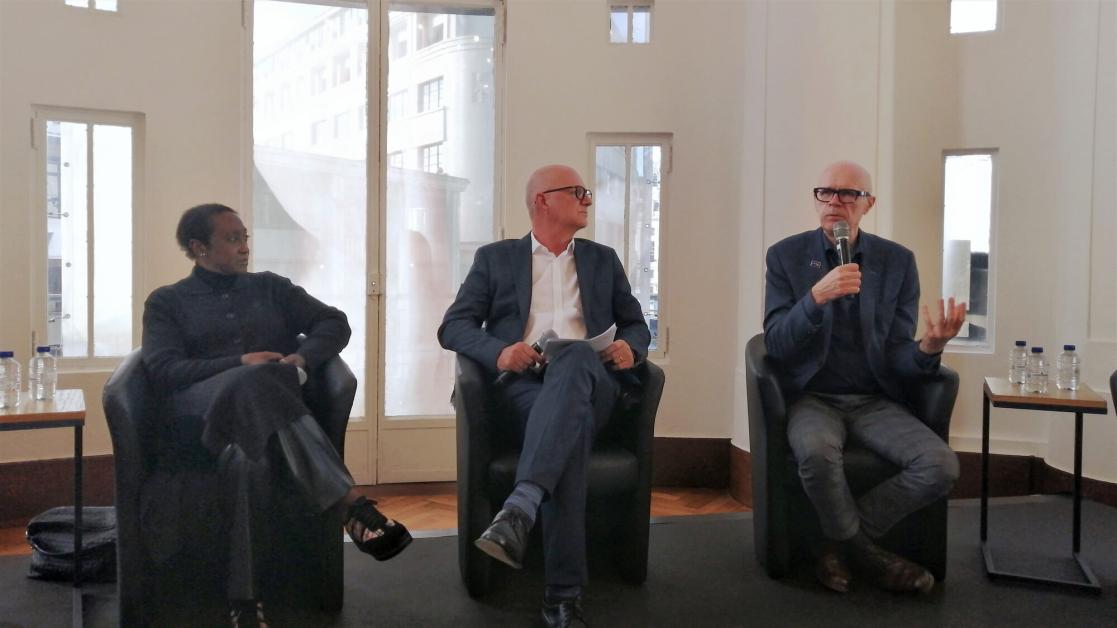Museums as Bridges Between Cultures: A Global Conversation

Museum professionals from Africa, Europe, and Latin America came together at a recent event in Brussels to discuss the future of cultural exchange. Taking place at the Bozar Centre for Fine Arts, the debate called Future of Museum Cooperation: An Open Global South - EU Dialogue, was held in the fringes of the New European Bauhaus Festival (9-13 April 2024).
With a large attendance of art professionals, cultural agents, civil society and diplomats, the two panels initiated a rich conversation around museum cooperation between professionals from Europe, Africa and Latin America.
The lively debate highlighted the role museums play in fostering dialogue & understanding between cultures. The cross-fertilisation of contemporary creativity and museum heritage creates powerful interactions in the process of shaping new relations and perceptions in between museums and their publics, in museum cooperation and in cultural relations in general. This enables exciting exchanges on an equal footing between Africa and Europe.
Dynamic cultural spaces
Museums are evolving beyond simply displaying artefacts. Today, they seek to become dynamic cultural spaces for art, society, and critical reflection. Museums are vital to promote the understanding of cultural heritage and address contemporary social issues as diverse and inclusive spaces.
Decolonisation
Participants in the first panel, "New paths for African-European museum cooperation, learning from decolonisation movements" discussed the need for museums to rethink power and address their colonial past. To this end, museums must develop a more diverse and emancipated perspective. This requires rethinking the origins of collections and incorporating new voices.

European Union 2024
Digitalisation
In the increasingly interconnected world, digital technology creates new ways for museums to connect with audiences and share collections. Digital spaces are an opportunity to co-create common narratives. However, ethical considerations regarding access and use of digital tech were also addressed.
The museum of the future is envisioned as a hub for creative expression, fostering social engagement through contemporary art and collaborative practices. This includes working with communities to reimagine a sense of ownership and belonging.
South-South Cooperation
The importance of collaboration beyond traditional North-South partnerships was emphasised during the second panel “South-South cooperation towards a regenerative museum.” Sharing resources and expertise can help museums in the Global South develop their own narratives and approaches.
This global conversation underscores the potential of museums to reflect upon their historic role and rethink their engagement with the communities they serve. This will help to tear down barriers and build bridges between cultures. By embracing change and fostering inclusivity, museums can become powerful tools for social good and catalysts of change, integrating the local and community challenges in the global policies for a more inclusive, sustainable and beautiful future.

European Union 2024
Background information
The European Commission Directorate General for International Partnership (DG INTPA) is currently developing an EU Team Europe initiative on “Strengthening African-European Museum Partnerships.”
Participants in the debate included:
- Magdaléna Van den Broeck Lisková, the Head of Institutional Relations of the Centre for Fine Arts, Bozar, and
- Aude Maio Coliche, the director of the EEAS Strategic Communication, for welcoming remarks.
First panel: New path for Europe-Africa cooperation, learning from decolonial movements
Moderated by Christoph Pelzer (DG INTPA), included
- N’Goné Fall (independent curator and cultural policies specialist)
- Bart Ouvry (director general of the Africa Museum in Tervuren).
Second panel: South-South cooperation towards a regenerative museum
Moderated by Grégory Castéra (curator, researcher, and strategist), included
- Eduardo Santana (founding Director of the Museum of Environmental Sciences of the University of Guadalajara).
- (Follow the link to read an article by Eduardo Santana about his participation in the NEB event (ES).)
- Odile Tevie (director of Nubuke Foundation)
- Diana Betancourt (Artistic Director of Dhaka based Samdani Art Foundation).




